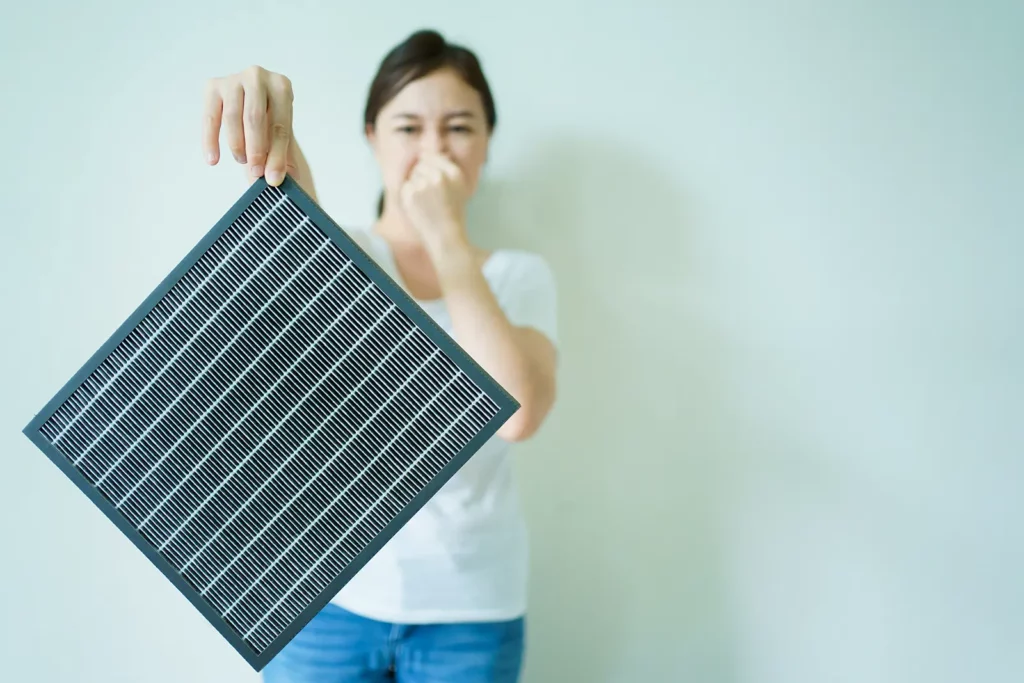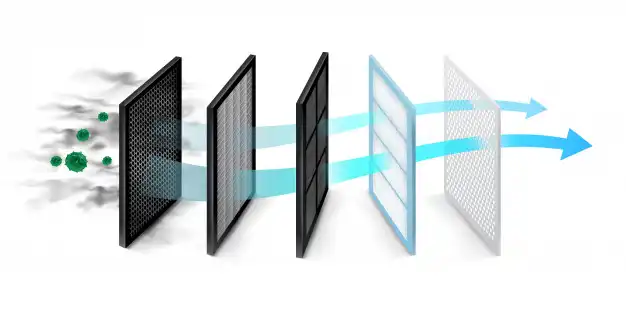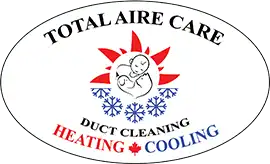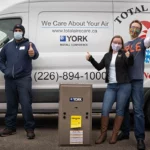HEPA Filters
Do you know what a HEPA filter is? If not, don’t worry, you’re not alone. HEPA type filters are a type of air filter that is designed to remove very small particles from the air. They are commonly used in homes and businesses to improve indoor air quality. In this blog post, we will discuss everything you need to know about HEPA! We will talk about what they are, how they work, and the benefits of using them!
If you have ever been in a hospital, you may have noticed that the air smells different. This is because hospitals use HEPA filters to remove bacteria and viruses from the air. This helps to create a clean and sterile environment for patients.
HEPA based filters work by trapping particles in a mesh of very small fibers. The fibers are so small that they can trap particles as small as 0.01 microns! This means that HEPA filtered air is very effective at removing dust, pollen, bacteria, and viruses from the air.
There are many benefits to using a HEPA furnace filter in your home or business. The most obvious benefit is that it will improve the air quality in your home or business. This is especially beneficial for people who suffer from allergies or asthma. HEPA filtered air can also help to remove unpleasant odors from the air, and they can even help to improve the efficiency of your furnace!
There are some drawbacks to using a HEPA filter as well. The most significant drawback is the cost. HEPA filters are more expensive than other types of air filters. They also need to be replaced more often than other types of air filters. Another drawback is that HEPA filters can sometimes reduce the airflow in your furnace, which can make it less efficient.
If you are considering using a HEPA furnace filter in your home or business, it is important to weigh the pros and cons. Here are more details on HEPA HVAC filters.
The History of HEPA Rated Filters and How they Work
HEPA filters were originally developed in the 1950s for use in industrial and commercial settings. HEPA filters were originally developed in the 1950s and were used in industrial and commercial settings.
Today, they are used in a wide range of applications, from manufacturing to healthcare to home cleaning. HEPA filters are known for their ability to trap very small particles, making them ideal for use in settings where contamination control is important. In recent years, HEPA filters have also been used in vehicle air purifiers to help improve air quality for drivers and passengers.
HEPA rated filters are composed of a mat of randomly arranged fibres, usually a combination of glass and aluminum fiber. While the fiber filtration concept is known to have been used before the invention of HEPA (as in the “baghouses” used in mining and chemical plants), it was not applied to air cleaning devices until after World War II, when it became necessary to find ways to filter very fine radioactive contaminants from the air. The first HEPA filters were made of asbestos, but it was soon replaced with glass fiber once it was found that asbestos fibers could cause lung cancer if inhaled.
The term “HEPA” became a registered trademark and later a generic trademark for highly efficient filters. HEPA filters are used in applications that require contamination control, such as the manufacturing of hard disk drives, medical devices, semiconductors, nuclear, food and pharmaceutical products, as well as in hospitals, homes, and vehicles. HEPA air filtration systems now play an important role in protecting people from the significant health impacts associated with indoor air pollution and allergies.
Types of HEPA Rated Filters
There are three different types of HEPA-type filters: “true” or “absolute” HEPA, HEPA-type, and high-efficiency particulate air (HEPA). True or absolute HEPA filters must remove at least 99.97% of particles that are 0.3 microns in diameter or larger. For example, when the filter is tested by passing particles of this size at a rate of one cubic foot per minute (cfm), the quantity that leaks through must be no more than 0.3 cfm. HEPA-type filters are also called “medium-efficiency” and must remove between 60% and 99.97% of 0.3 micron particles. High-efficiency particulate air (HEPA) filters are designed to remove at least 99.95% of particles that are 0.3 microns in diameter or larger.
According to this article from columbia.edu, HEPA HVAC filters can catch particles that contain coronaviruses.
HEPA filters are used in a variety of settings, including hospitals, homes, and vehicles. In hospitals, they are used to prevent the spread of infectious diseases, while in homes, they are used to remove allergens such as pollen and pet hair. In vehicles, HEPA filters may help reduce exposure to pollutants that can cause respiratory issues or worsen asthma symptoms.
HEPA filters have been shown to effectively reduce exposure to particulate matter (PM), which can cause numerous health issues, including asthma, chronic obstructive pulmonary disease (COPD), and heart attacks.
In one study, subjects who were exposed to PM10 (particles that are 10 microns or less in diameter) and PM2.5 (fine particles that are 2.5 microns or less in diameter) had a significant decrease in symptoms after using a HEPA filter for 12 hours per day over a period of two weeks. Exposure to PM is linked with cardiovascular events, respiratory disease and mortality, as well as blood changes such as reduced levels of antioxidants and alterations in the inflammatory response.

HEPA filters have also been shown to significantly reduce allergy symptoms. In one study, using a HEPA furnace filter in homes led to significant reductions in dust mite allergens, cockroach allergens, fungal allergens and cat allergens. In another study, HEPA filtration was effective at reducing the presence of airborne irritants like dust mites, tobacco smoke and mold.
HEPA HVAC filters have been shown to significantly reduce indoor air pollution. In one large-scale study, the average reduction of airborne pollutants was 80% after installing HEPA filtration.
The main components to a HEPA filter include the frame, sealant cement, sealant strip and blanketing. The frame is usually made out of metal or plastic and can come in many shapes and sizes. The sealant cement is used to attach the filter paper to the frame and create a seal that prevents air from bypassing the filter. The sealant strip is used to further secure the filter paper to the frame and prevent air from leaking around the edges. The blanketing is a layer of material that helps support the filter paper and keep it from tearing.
HEPA Filter Applications
There are many different applications for air filters with HEPA. Some of the most common include:
-Hospital operating rooms: To prevent the spread of infection
-Vehicles: To reduce exposure to pollutants
-Homes: To remove allergens and other indoor air pollutants
-Industrial settings: To reduce exposure to harmful particulate matter
-Schools: To improve air quality for students and staff
Overall, HEPA HVAC filters have been shown to be an effective way to reduce exposure to particulate matter and other indoor pollutants. They can significantly improve the health of individuals who are exposed to particles on a regular basis.
Additionally, HEPA filters can significantly improve the quality of indoor air. Overall, HEPA filters are a highly effective tool for reducing exposure to particulate matter and other indoor air pollutants.
Do you have more questions about HEPA air filtration? Check out our article on Indoor Air Quality.

Our Amazing Staff!
At Total Aire Care, we have an award-winning staff of experienced and skilled service technicians who are dedicated to providing you with the best products and service possible.

We Love Our Community!
At Total Aire Care, we believe in community efforts and giving back. That’s why we partner with local charities to support their causes, and also host contests for our community members to be part of something special.









